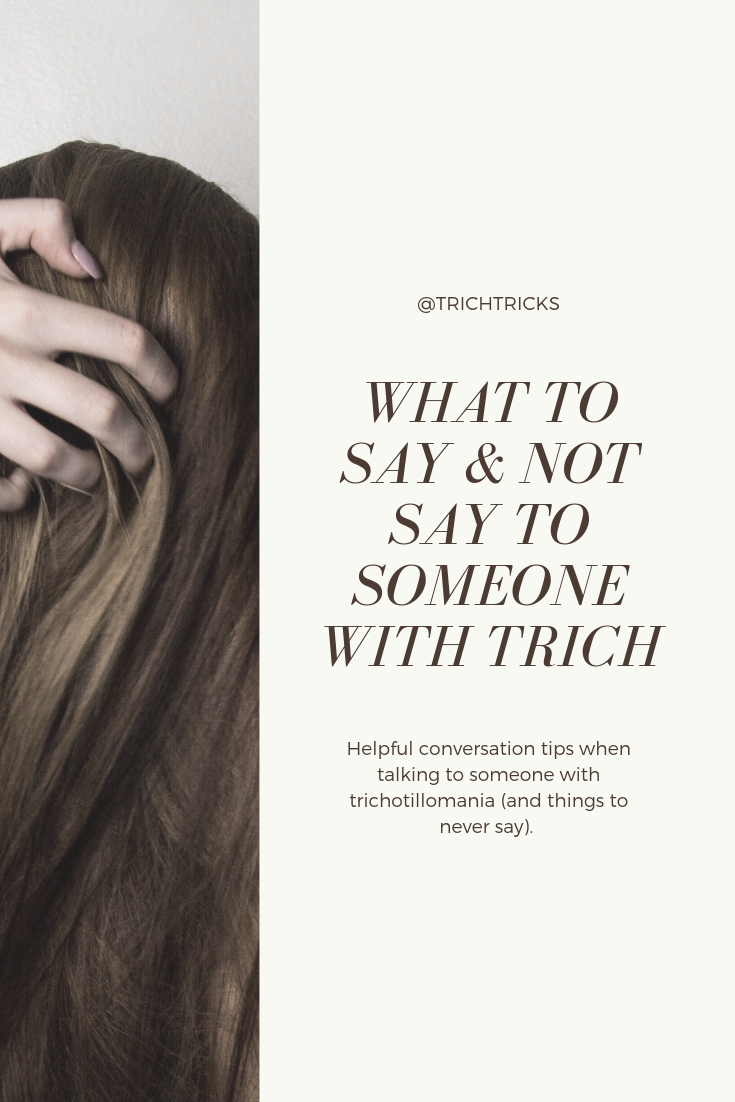Dr. Mariaskin Answers Your Questions about Trichotillomania
Dr. Mariaskin, of the Nashville OCD and Anxiety Treatment Center, took on some of Instagram’s burning questions about trichotillomania:
How can teens talk to parents about trichotillomania if their parents won't do their own research? What if parents think it's "attention seeking" or in the child's control?
What a difficult situation! The TLC Foundation has great materials written by mental health professionals who have years of experience with trich and other BFRBs. I would start by printing off some materials from their website. If your parents won't do their own research, show them that you have! What parent can be mad at a kid for doing research?
How can people handle the shame component after the engaged behavior?
The self-compassion literature shows that treating oneself with kindness instead of anger/shame is more effective for promoting positive behavior in the future. Think about it like having a coach. Would you feel more motivated by someone who yells at you and tells you you're terrible every time you mess up on the field or by someone who is kind and supportive after a mistake? Treating yourself with kindness and compassion is key after a pulling episode (or anything else where shame is apt to follow). What this looks like can vary from person to person.
What's the best thing a parent can do (or not do) with a child with trich?
If I could give one piece of advice to parents re: trich, it would be not to punish your child's pulling behaviors. For most kids, trich is often already associated with negative outcomes, such as social scrutiny or shame. Instead, try to meet your child's pulling with compassion and support. Helping them choose strategies that are incompatible with pulling and celebrating their efforts (not results) are two ways to positively impact kids' motivation. Also, consider the child's developmental age. Younger kids will need more support and structure; whereas teenagers will likely want to take charge themselves.
What causes trich? Is there a neurological side to this? A gene?
As with many other mental health concerns, there is a genetic component to trich, but there is no single "trich gene." That is, we know that it tends to run in families. And while some gene polymorphisms may increase the risk of having trich, there is no one genetic marker for it. As for neurological markers, there is nothing definitive in the research yet. In some ways, this makes sense because the experience of trich can be really different for different people (automatic vs. focused pulling; sensory pleasure vs. emotional soothing). It will be exciting to see new research pour in about this common condition.
Amy Mariaskin (``Mary-askin``) is a licensed clinical psychologist has 13 years of experience treating OCD, anxiety and related disorders. She has worked with adults, adolescents, children, and families affected by these disorders. She is passionate about direct care and enjoys helping people overcome their symptoms with compassion, creativity, and humor.








